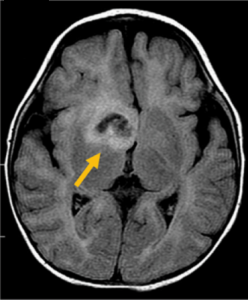Publications
Our Area of Focus
Since Dr. Tabori is a clinician-scientist, our research program is focused on combining biological and translational research in pediatric oncology. Most notably, we are interested in studying the mechanisms underlying brain tumor immortality and recurrence in the context of predisposition to cancer. Currently our group is studying three major areas related to this concept:
Replication Repair Deficiency
We have established the international consortium of Replication Repair Deficiency (IRRDC) which has uncovered clinical and biological implications of children with consitutional mismatch repair deficiency syndrome (CMMRD). We have uncovered that CMMRD cancers have the highest mutational load in humans and a mutation signature that can be traced to the germline. Our discovery of ultrahypermutation in CMMRD cancers has led to the first ever response to immune checkpoint inhibitors of recurrent glioblastoma (J Clin Oncol 2016) reported by the consortium and the implementation of two international clinical trials.
To learn more about the consortium and our RRD research, please visit the Replication Repair Deficiency Consortium website
Paediatric Low Grade Gliomas
Paediatric low grade gliomas (PLGG) are a clinical and translational passion of our group. PLGG is the most common childhood brain tumour and has unique biological characteristics ranging from spontaneous growth arrest to malignant transformation. We were the first to demonstrate the role of replicative senescence in PLGG and to utilize it as a prognostic factor. We have since initiated a multi-disciplinary Canadian low grade glioma task force (PLGG taskforce) which incorporates clinical prospective trials, long term outcome studies and basic science questions. All of these are done in collaboration with 17 other paediatric cancer centres in Canada.
Click here to learn more about our Paediatric Low Grade Gliomas research

